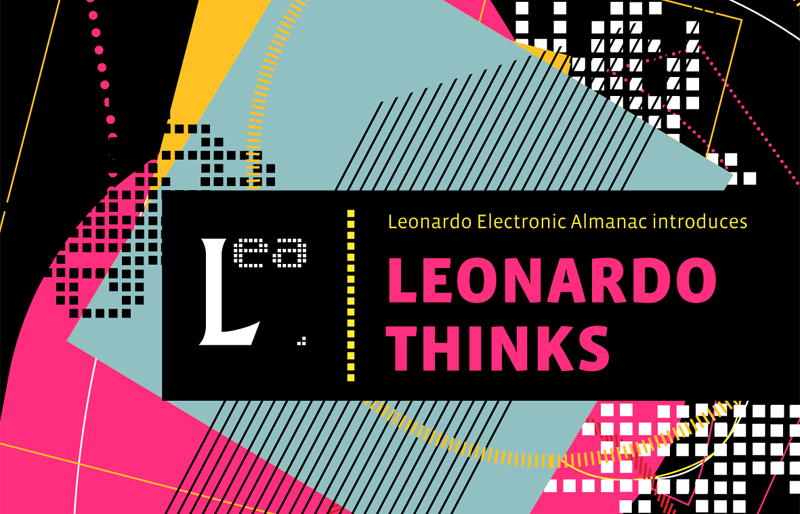
LEONARDO THINKS 1968 – 2011
Contemporary Opinion by Robert Pepperell
Robert Pepperell asserts that the sheer volume and diversity of information today demonstrates a maturing human condition that will allow us to affirm the plurality of our approaches, while fostering their underlying interconnectedness.
An Information Sublime: Knowledge After the Postmodern Condition
It is now 30 years since the publication of JeanFrançois Lyotard’s influential report on the state of knowledge in industrialized nations, The Postmodern Condition. In it he argued against totalizing systems of thought, such as Marxism, and argued instead for a plurality of ideas supported by the free flow of information through computer networks. It is a measure of the report’s farsightedness that its proposals raise few objections, even eyebrows, today.
The poet John Milton, born just over 400 years ago, is reputed to have been the last person who might have read every book in print and thereby have grasped the sum of published human knowledge. So vast is the quantity of material currently in circulation, and so diverse the content, that no person could access more than a tiny fragment in a lifetime.
Does the demise of grand systems of thought preclude the hope that human knowledge could be harmonized? By accepting plurality, do we admit there are no universal truths to uncover? For those of us who suspect all human knowledge is somehow deeply connected, these would be unsatisfying conclusions.
There is some value in the claim that the three main branches of inquiry remain distinct in that the arts proceed by intuition, the humanities by argument and the sciences by experiment. As we promote intersections between disciplines, we should not overwrite these differences nor minimize the depth of knowledge required to engage with debates across fields. The often speculative process of making art does not always sit easily with the logic of rational argument or the quantitative limitations of scientific analysis. However, if we believe that productive ways of interdisciplinary working can be found, it is because we sense that something holistically binds our investigations.
Perhaps what unites art, philosophy and science is that at its best each reaches toward the unknown. Important art invokes the transcendent, philosophy strives to comprehend the metaphysical and science offers glimpses into the mysterious. Think of Titian’s Assumption of the Virgin, Schopenhauer’s Will or Einstein’s description of the mystical as a beautiful emotion. In each case we are referred to aspects of reality that lie beyond our immediate grasp but toward which we feel compelled to reach.
In The Postmodern Condition, Lyotard also argued for a re-engagement with the sublime, that combination of excitement and anxiety we experience when confronted with the boundlessness of nature and the cosmos. Many of us have had the thrill of discovering a like mind through the Internet or some remote correlation to our own work on-line. As search engines grow in size and sophistication and social networks become places for exchanging ideas, the potential for such links multiplies. At the same time, we are drawn into a vast edifice of data that can overwhelm as much as it excites. Could we begin to feel some of the same awe at this boundless realm of information that earlier generations felt towards the extremities of the natural world – an information sublime?
The current condition of knowledge may be ambivalent, not to say paradoxical. The Internet connects hitherto discrete areas of inquiry in a way that could conceivably trigger an intellectual Big Bang – an expansion of ideas and connections that overrides historical and regional boundaries. At the same time, the sheer volume and diversity of information renders any global synthesis impractical, however much desired. We may now be forced to abandon anything like a unified field of knowledge and accept that the more we know the more we know we do not know.
I would suggest that, rather than grounds for pessimism, this is a sign of our maturing human condition: that we affirm the plurality of our approaches while fostering their underlying interconnectedness. However diverse human knowledge may be, the unknown is the same for us all.
Robert Pepperell, an artist, is currently Professor of Fine Art and Head of the Fine Art Department at Cardiff School of Art & Design. His website is http://www.robertpepperell.com/
ISSN No: 1071-4391
Author: Robert Pepperell, Leonardo Reviews Panelist,
E-mail: pepperell@ntlworld.com
Originally published in: Leonardo October 2009, Vol. 42, No. 5: 384–384
Print: ISSN 0024-094X, Online: ISSN 1530-9282, DOI: http://www.mitpressjournals.org/doi/pdf/10.1162/leon.2009.42.5.384
Leonardo is a registered trademark of the ISAST.
